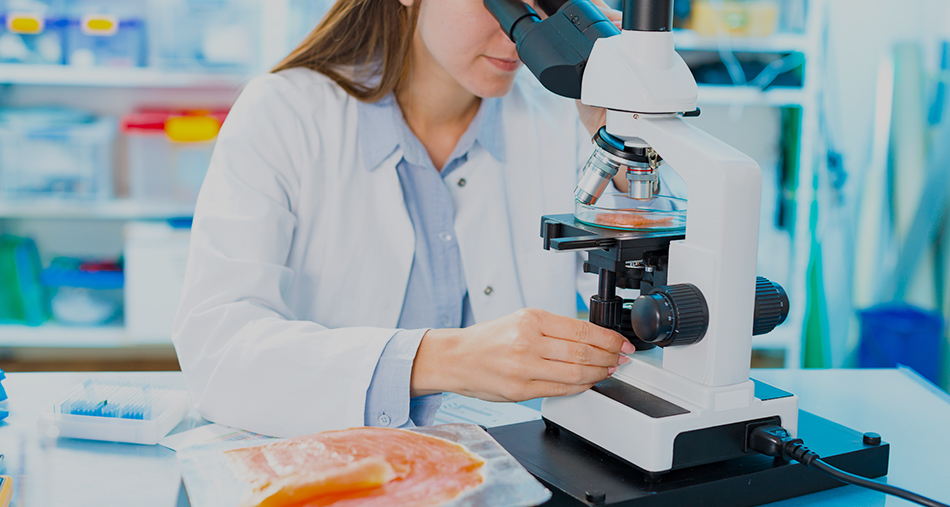
Faculty of Food Science and Biotechnology
Direction of research

- UP
- Faculty of Food Science and Biotechnology
- Direction of research
The current research activities of the Faculty of Food Science and Biotechnology are mainly focused on the following problems:
- Storage characteristics of foodstuffs and agricultural products at different levels of air relative humidity (characteristics of sorption properties of materials from gaseous and liquid phase; determination of sorption isotherms).
- Non-standard chromatographic and voltamperometric analyses.
- Design and quality assessment of food additives (diet supplements).
- Improving techniques for obtaining of biologically active substances from plant materials.
- Quality and quantity analysis of essential oils.
- Monitoring of mercury levels in foodstuffs, herbs, cigarettes, and determination of this element in human and animal organisms in relation to environment.
- Chromatographic assessment of quality of fats after heating and storage with additives stabilizing the composition of fatty acids.
- Studies on influence of pulsed electric field (PEF) on changes of microorganisms cell wall permeability (accumulation of inorganic ions in cells and their effect on activity of chosen enzymes).
- The antioxidative property of phenolic compounds and peptides in food from plant origin and the methods of their determination.
- Biodegrade and active food covering.
- The elicitors as factors inducing plants defensive reaction.
- Bioconversion of polysaccharides (cellulose, hemicellulose, starch, inulin) into simple organic compounds (ethanol, sugars, organic acids).
- Production of enzymes by microorganisms
- Genetic modification of microorganisms (mutation, fussion of protoplasts, genetic recombination).
- Characterizations and applications of enzymatic preparations in food technology.
- Evaluation of microbial and chemical contaminations and detection of falsifications in foods.
- Development of methods for obtaining polymer/whey protein aggregates, which can be used as substances for increasing the viscosity.
- The investigation of different interactions between proteins and saccharides and their effect on the functional properties of proteins.
- Development of technology for the production of processed cheese analogues with the addition of whey proteins or their polymers
- Development of technology for the production of milk desserts without the polysaccharide thickeners and gelling agents
- Use of whey protein formulations to improve the functional and nutritional properties of products.
- Influence of different factors on the rheological properties of products (e.g. storage effects, microbiological changes).
- Analysis of chemical and physical stability of dietary supplements for athletes and physically active people.
- The investigation of milling quality of wheat varieties.
- Laboratory analysis of flour and investigation of baking quality.
- Analysis of dietary fibre content and it’s fractional composition.
- Analysis of (1→3) (1→4) ß-D glucan content.
- Food safety.
- Determination of chemical contaminants and biological components in food.
- Grain quality assessment – instrumental methods.
- Studying and assessment of oilseeds use value.
- Modeling of physical and chemical processes in soils on the basis of the experimental method.
- Design of organic compounds with potential biological activity.
- Studying and assessment of anthropogenic impacts on the environment and practical solutions.
Quality and safety of plant and animal origin food, technologies of obtaining foodstuffs for particular nutritional uses, improving the properties of food biopolymers by chemical and enzymatic modification; studies on the bioavailability of food ingredients, isolation and characterization of bioactive substances in food and the design and synthesis of physiologically active compounds; proteomics and peptidomics of raw materials and food products; the role of dietary components in the prevention of disease states, the use of biotechnological methods in the preparation of physiologically active compounds, biodegradable food packaging, food and environmental protection, renewable energy sources.
University of Life Sciences in Lublin
13 Akademicka Street, 20-950 Lublin
VATIN 712 010 37 75
REGON no. 000001896
ePUAP: /UP-Lublin/SkrytkaESP
Faculty of Food Science and Biotechnology
8 Skromna Street
20-704 Lublin
Phone no. +48 81 462 33 74
+48 81 462 33 92
Fax. +48 81 462 33 76


